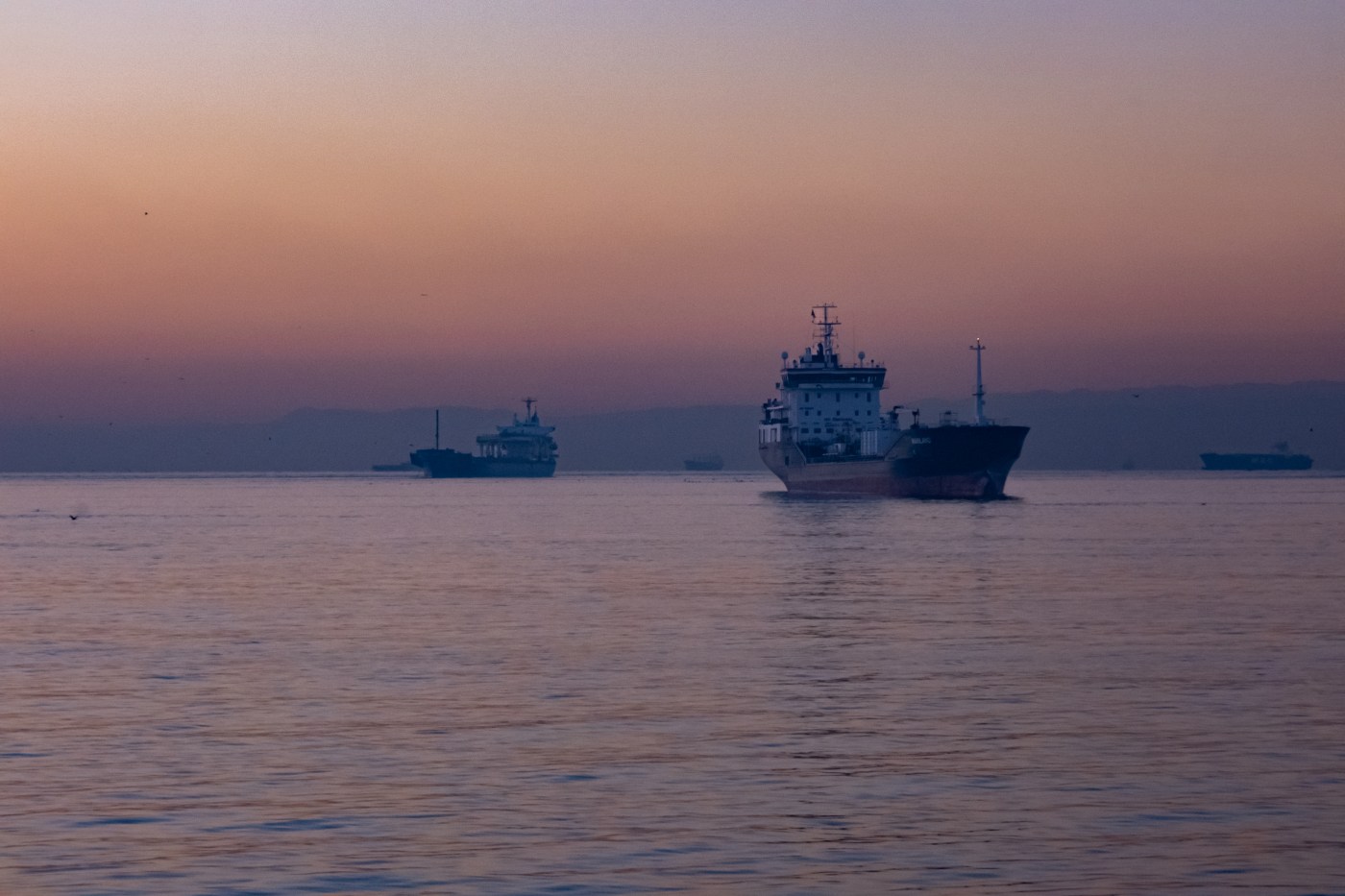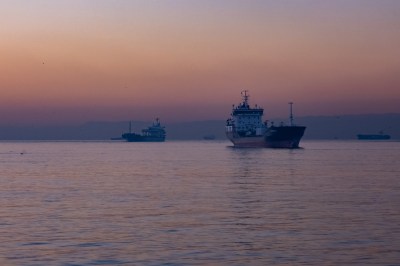ISTANBUL—Early Wednesday morning a ship with more than 63,000 tons of corn sailed through the Bosphorus Strait to make its way to China. The journey almost didn’t happen.
Last weekend Russia announced it would leave an agreement facilitating the passage of agricultural freight in the Black Sea, renewing fears of a global food shortage. Yet four days later, Russian officials said that the country would stick to the accord. Why didn’t this Russian gamble pay off?
What is the Black Sea Grain Initiative and how did it come about?
Ukraine is one of the world’s major producers of grain, corn, sunflower oil, and other staples. The Russian invasion, and subsequent blockade of Ukrainian agricultural exports in the Black Sea, threatened to destabilize countries around the world that rely on food imports from the eastern European country.
In July the United Nations and Turkey brokered an agreement that would partially lift the blockade and allow Russia to export its own food and fertilizers. Secretary-General António Guterres hailed the agreement as “a beacon of hope.”
Vladimir Putin is not exactly a “beacon of hope” type of guy—his strategy in Ukraine involves indiscriminately killing civilians and destroying energy and water infrastructure to wreak havoc. He agreed to let Ukraine resume exporting food not out of the kindness of his heart but from fear of turning neutral countries against Russia in the conflict. Russian state coffers are also padded by food and fertilizer exports traveling through the Black Sea.
Nearly 10 million tons of food products have been shipped from the Ukrainian Black Sea ports since July. This has kept millions of people—including many in vulnerable countries like Ethiopia, Bangladesh, and Somalia—from going hungry and prevented prices from skyrocketing even as Europe’s breadbasket remains embroiled in war.
Russia’s threatened exit from the deal imperiled these achievements. Because the passageway is civilian-run, it depends on the Ukrainian and Russian militaries’ mutual commitment not to attack participating ships. Withdrawing would mean that civilian vessels in the Black Sea are no longer safe from Russian attacks.
Why did Russia suspend its participation in the first place?
The Kremlin said it would pull out of the deal over reported Ukrainian drone strikes on the Russian Black Sea Fleet over the weekend. Russian officials implied the attacks were staged from a protected civilian vessel and violated the terms of the agreement, but U.N. aid chief Martin Griffiths on Monday denied that there were participating ships in-transit at the time of the alleged attack.
Russia also has accused Ukraine of using the route to smuggle weapons, even though ships undergo rigorous inspections by representatives from Turkey, Ukraine, Russia, and the U.N. here in Istanbul. Russia would “undertake its own measures” to control the passage of ships in the Black Sea, the country’s U.N. ambassador, Vasily Nebenzya, threatened.
In reality, Moscow was likely testing whether withdrawal could provide Russia more leverage, perhaps to ease sanctions, as its forces lose ground in Ukraine. Moscow has long complained that Western restrictions hinder agricultural exports even with the grain deal—citing difficulty accessing European ports, buying insurance, and working with foreign shipping companies.
Why did the bid fail?
In short, Ukraine and others called Russia’s bluff.
A record volume of 354,500 tons of agricultural exports left Odesa on Monday, Ukrainian officials said, provoking more escalatory rhetoric from Russian officials. “The movement of ships along the security corridor is unacceptable, since the Ukrainian leadership and the command of the Armed Forces of Ukraine use it to conduct military operations against the Russian Federation,” Russia’s defense ministry said in a statement.
But continuing shipments despite the Kremlin’s grandstanding left it with limited options: Return to compliance with the agreement or reimpose the blockade by force, and it’s unlikely that Russia has the political will or the military capability to do the latter.
“I believe Russia lacks the ability to use its naval forces to enforce a blockade and finds the prospect of attacking merchant shipping carrying food unpalatable,” said Eric Edelman, former U.S. ambassador to Turkey and Finland and under secretary of defense for policy. Many of the ships that have traversed the corridor were bound for or owned by Russia’s few remaining international partners. More than 1 million tons of cargo have gone to China, for instance.
Going on the offensive would also aggravate Russia’s relations with Turkey, the main broker of the initial agreement and overseer of the Black Sea’s only point of entry. The NATO ally has toed a precarious line in the conflict, and Turkish President Recep Tayyip Erdogan remains one of the few world leaders who has a productive relationship with Russia and Ukraine. Resuscitating the near-failed agreement marks a major diplomatic victory for Erdogan.
“It helps Erdogan’s stature especially with the Europeans, many of which would like to see that, notwithstanding European support to Ukraine, someone can still talk to Putin,” said Dr. Soner Cagaptay, a Turkey analyst with the Washington Institute. “Because ultimately, there’s got to be some kind of a peace talk at the end of this conflict.”







Please note that we at The Dispatch hold ourselves, our work, and our commenters to a higher standard than other places on the internet. We welcome comments that foster genuine debate or discussion—including comments critical of us or our work—but responses that include ad hominem attacks on fellow Dispatch members or are intended to stoke fear and anger may be moderated.
With your membership, you only have the ability to comment on The Morning Dispatch articles. Consider upgrading to join the conversation everywhere.